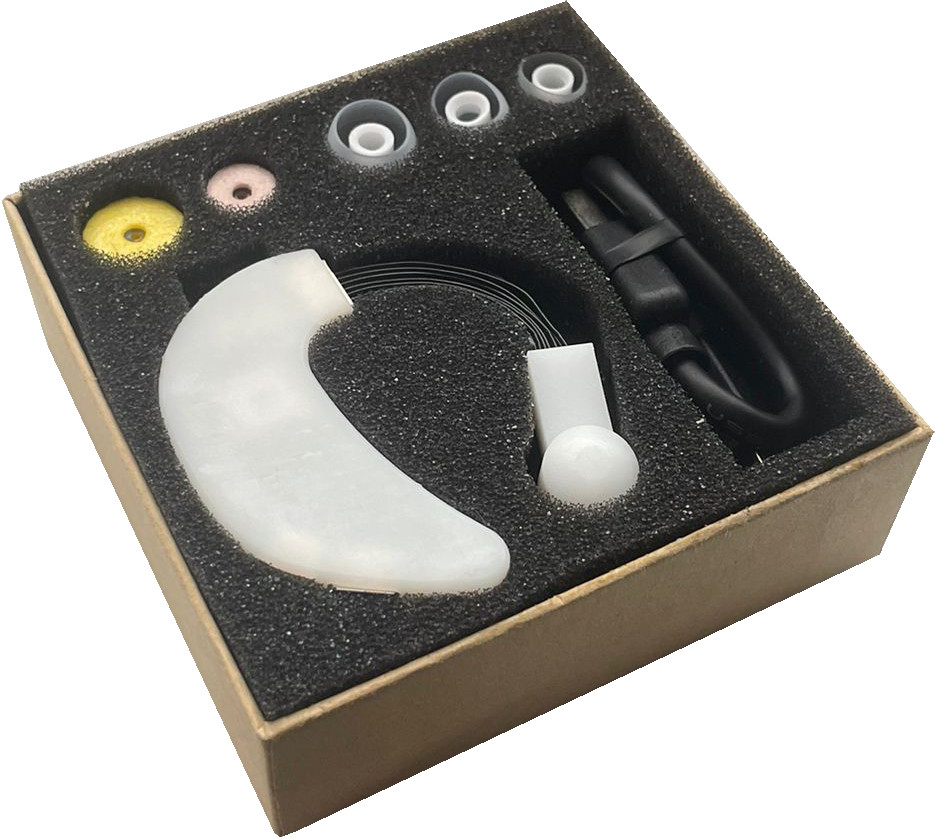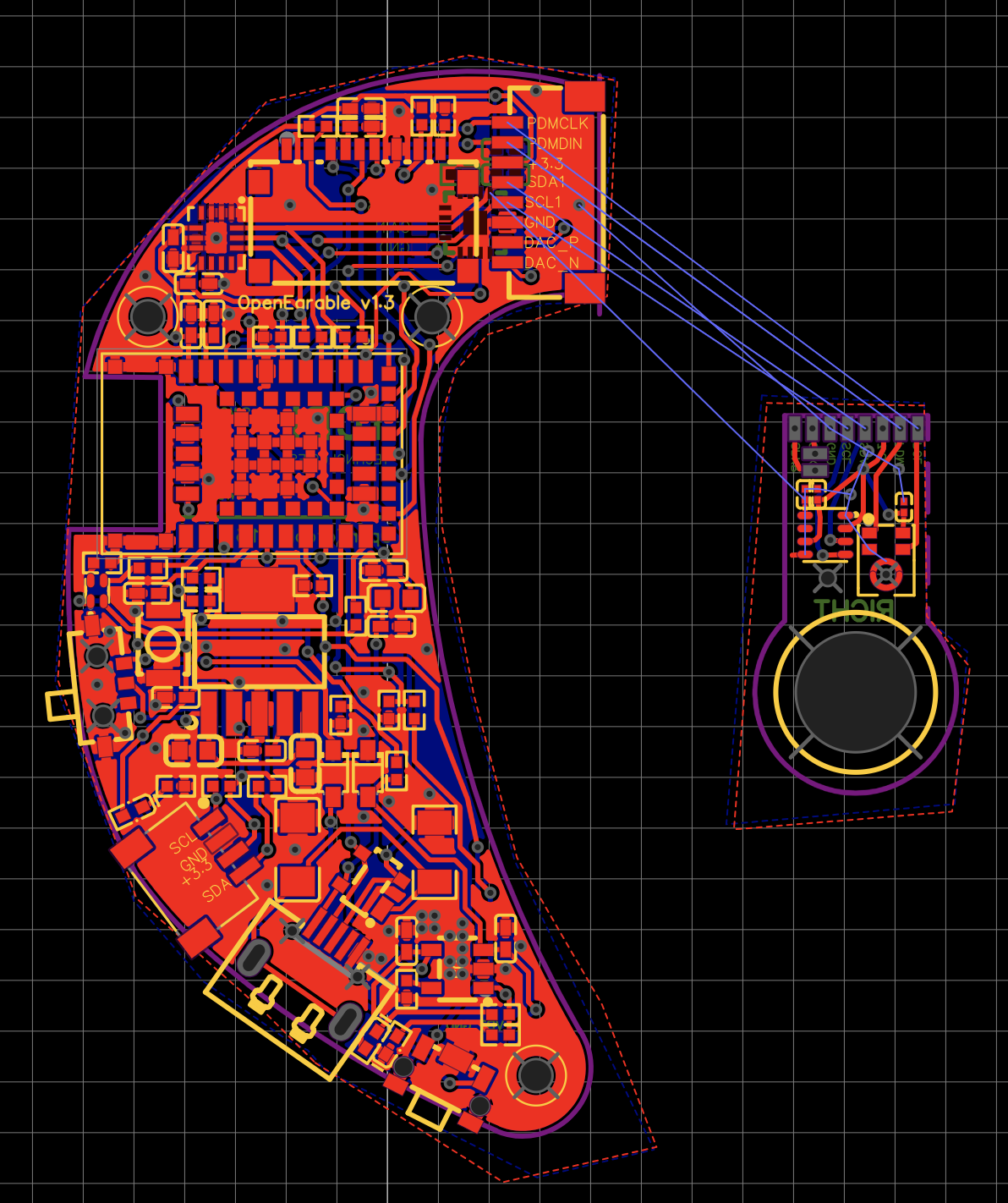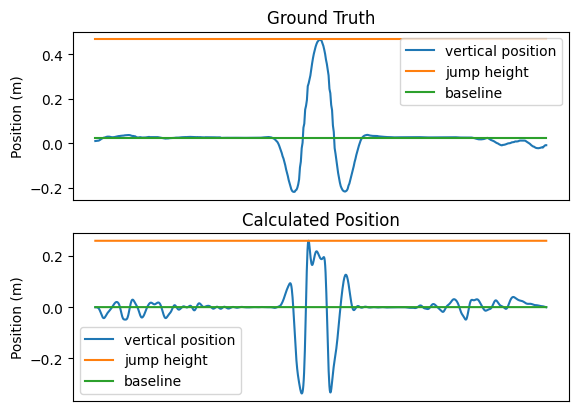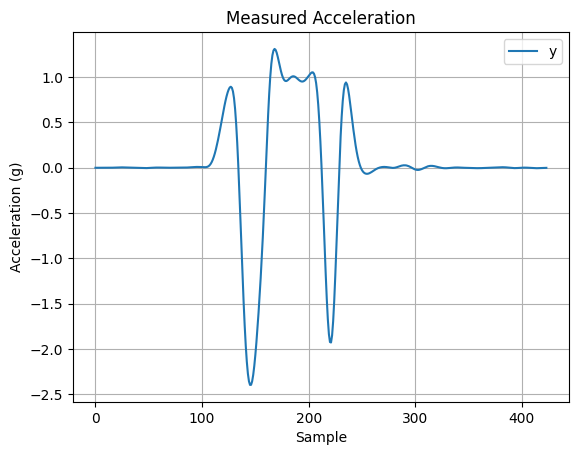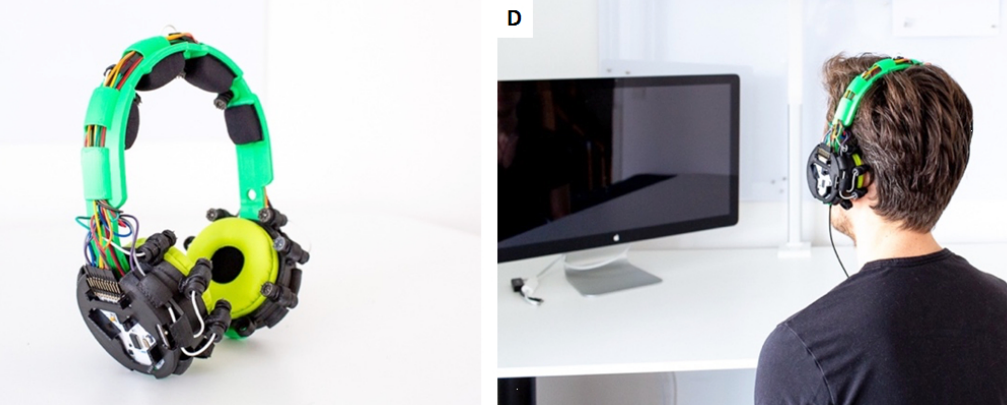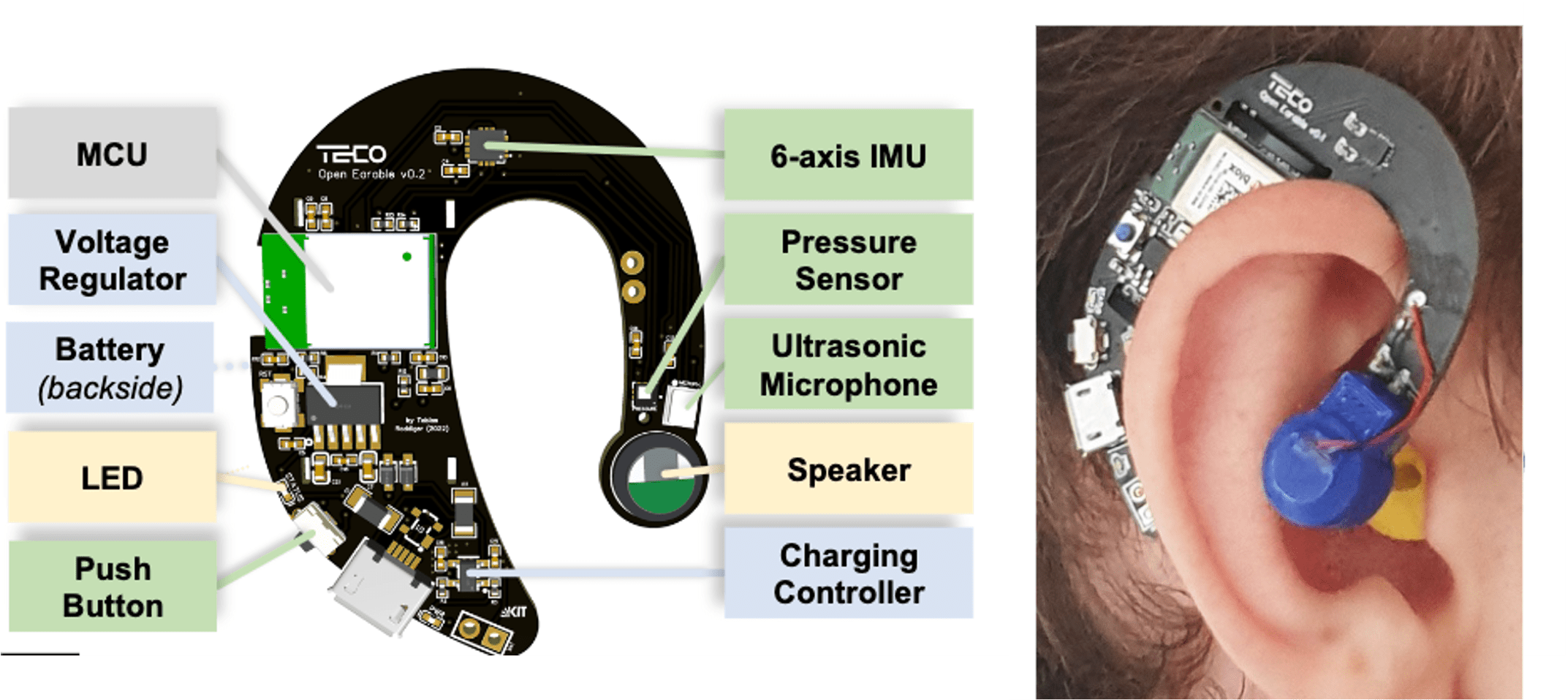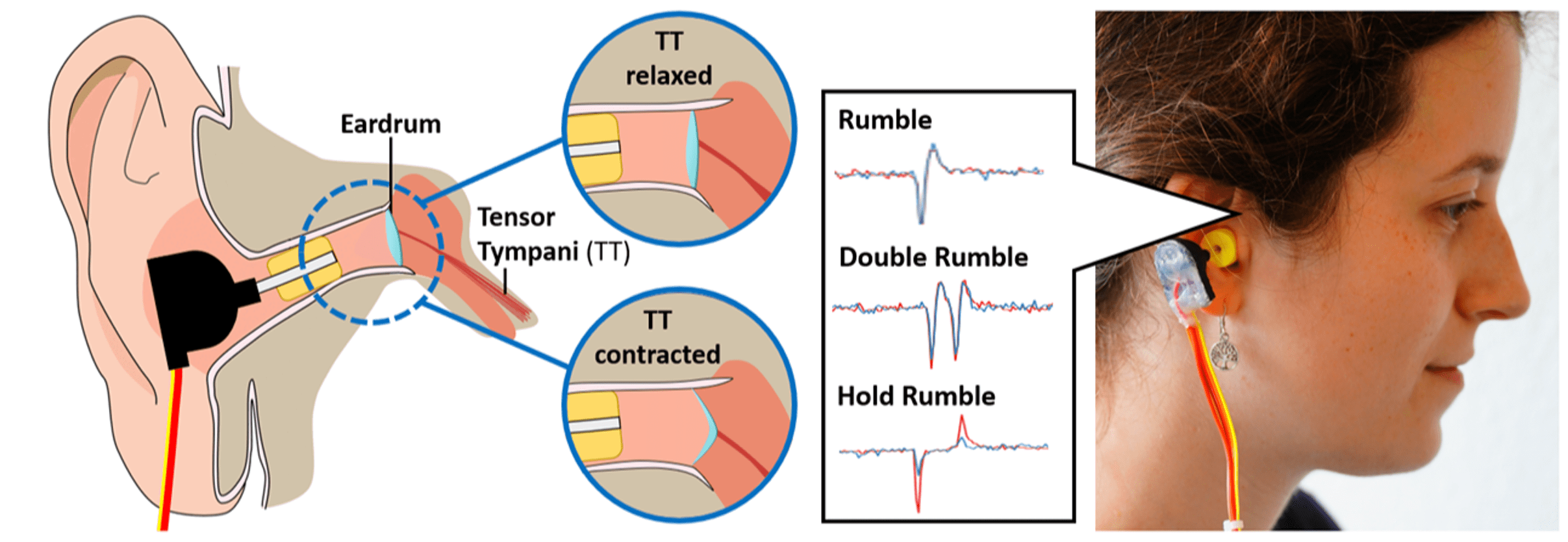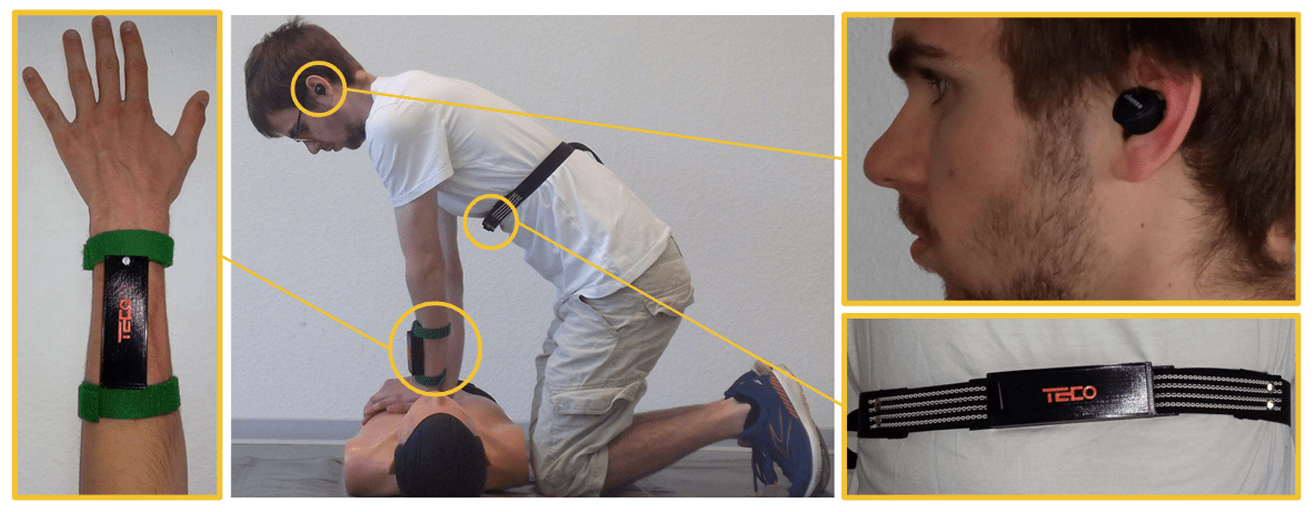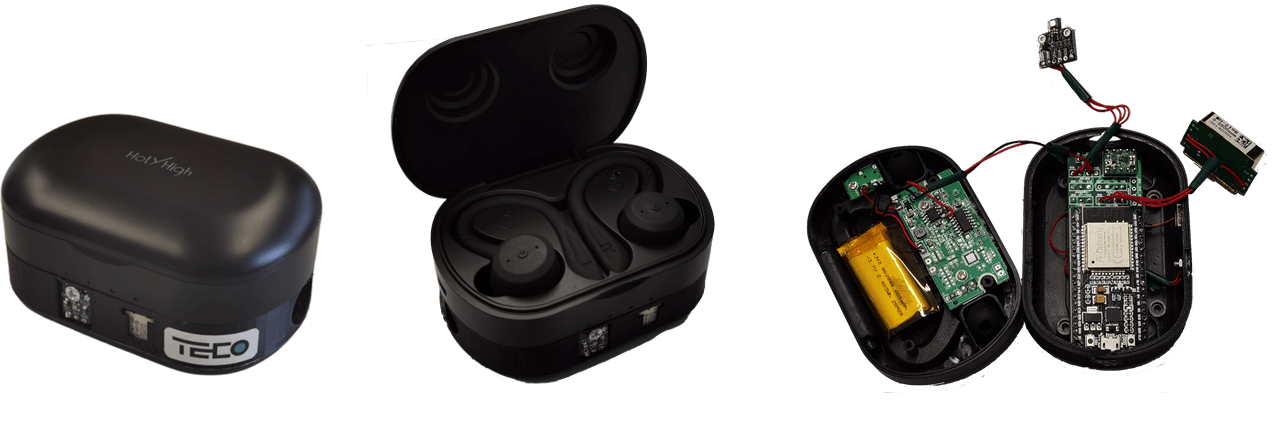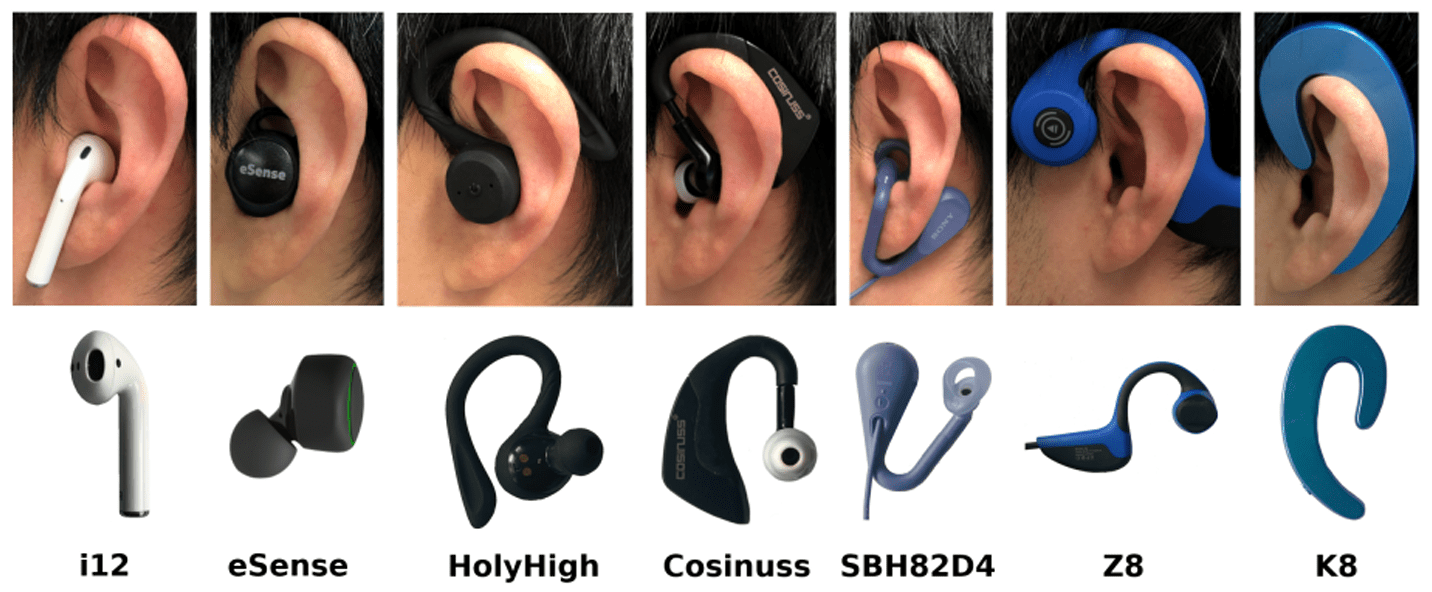About Us
Welcome to the central repository of all research around earables conducted at the Karlsruhe Institute of Technology (KIT) in Germany. Here you can find all the latest publications we have been working on within the TECO research group (Prof. Dr. Michael Beigl) and also across KIT. We focus on building new applications with earables across different topics in Ubicomp and HCI. Earables are devices that attach in, on, or in the immediate vicinity of the ear to offer functionalities beyond basic audio in- and output.
OpenEarable v1.3 Starter Bundle Released
Tobias Röddiger, Tobias King, Dylan Roodt, Christopher Clarke, Michael Beigl
Published under MIT License
The new version of the OpenEarable hardware and software is now available.
All features of the previous version are still available, but we added a few new ones.
The design is more wearable friendly by supporting a flexible earpiece.
In addition the earpiece is now exchangeable and can be replaced by a custom one.
Vertical Jump Test Using an Earable Accelerometer
Dennis Moschina, Tobias Röddiger, Michael Beigl
4th International Workshop Earable Computing (Earcomp 2023), Ubicomp Workshop
In recent years, more and more consumer earphones come equipped with inertial measurement units (IMUs).
Using such sensors, past research has broadly explored earables for fitness applications.
Tying in with this research, we initially evaluated how the accelerometer inside earables may be leveraged to conduct vertical jump testing,
which is a common standard measure to assess fitness ...
OpenBCI+ 3D-Printed Headphones = Open ExG Headphones – An Open-Source Research Platform for Biopotential Earable Applications
Michael Thomas Knierim, Daniel Puhl, Gabriel Ivucic, Tobias Röddiger
Extended Abstracts of the 2023 CHI Conference on Human Factors in Computing Systems
Earables research is a promising field in Human-Computer Interaction (HCI) due to the variety of
observable phenomena that can be captured by sensors placed in the ear region. However, this field
is hindered by the use of custom-built hardware and software, which can create barriers for
less experienced researchers and lead ...
Sensing with Earables: A Systematic Literature Review and Taxonomy of Phenomena
Tobias Röddiger, Christopher Clarke, Paula Breitling, Tim Schneegans, Haibin Zhao,
Hans Gellersen, Michael Beigl
Proceedings of the ACM on Interactive, Mobile, Wearable and Ubiquitous Technologies (2022)
Earables have emerged as a unique platform for ubiquitous computing by augmenting ear-worn
devices with state-of-the-art sensing. This new platform has spurred a wealth of new
research exploring what can be detected on a wearable, small form factor. As a sensing
platform, the ears are ...
OpenEarable: Open Hardware Earable Sensing Platform
Tobias Röddiger, Tobias King, Dylan Ray Roodt, Christopher Clarke, Michael
Beigl
3rd International Workshop Earable Computing (Earcomp 2022), Ubicomp Workshop
Earables are ear-worn devices that offer functionalities beyond
basic audio in- and output. In this paper we present the ongoing de-
velopment of a new, open-source, Arduino-based earable platform
called OpenEarable. It is based on standard components, is easy to
manufacture and costs roughly $40 per device at batch size ten. We present the first version of the device which is equipped with a series of sensors ...
A Simplified Design of a cEEGrid Ear-Electrode Adapter for the OpenBCI Biosensing Platform
Michael T Knierim, Max Schemmer, Niklas Bauer
HardwareX
We present a simplified design of an ear-centered sensing system built around the OpenBCI Cyton & Daisy biosignal amplifiers and the flex-printed cEEGrid ear-EEG electrodes. This design reduces the number of components that need to be sourced, reduces mechanical artefacts on the recording data ...
EarRumble: Discreet Hands-and Eyes-Free Input by Voluntary Tensor Tympani Muscle Contraction
Tobias Röddiger, Christopher Clarke, Daniel Wolffram, Matthias Budde, Michael Beigl
Proceedings of the 2021 CHI Conference on Human Factors in Computing Systems
We explore how discreet input can be provided using the tensor tympani-a small muscle in the middle ear that some people can voluntarily contract to induce a dull rumbling sound. We investigate the prevalence and ability to control the muscle through an online questionnaire (N= 192) in which 43.2% ...
Cardiopulmonary Resuscitation Support: Comparison of Wrist-, Chest-, and Ear-Worn Devices and Estimation Algorithms
Stefan Hermann, Paula Breitling, Tobias Röddiger, Michael Beigl
ISWC '21: 2021 International Symposium on Wearable Computers
Chest compressions (CC) are the most important means of treating cardiac arrest but are challenging to perform. Real-time feedback of depth and rate can improve CC quality. For the first time, we compared three wearable positions and six depth, and rate estimation algorithms under the same conditions ...
AirCase: Earable Charging Case with Air Quality Monitoring and Soundscape Sonification
Haibin Zhao, Tobias Röddiger, Michael Beigl
2nd International Workshop Earable Computing (Earcomp 2021), Ubicomp Workshop
Bad air quality and insufficient ventilation can have severe impacts on personal health. We present AirCase, a smart earable charging case that measures CO2, volatile organic compounds, humidity, air pressure, temperature, and light intensity. The case powers both the air quality system and the earables ...
Wearability and Comfort of Earables during Sleep
Tobias Röddiger, Christian Dinse, Michael Beigl
ISWC '21: 2021 International Symposium on Wearable Computers
Earables are an emerging sensory platform. In its realm, many past publications looked into sleep-related parameters such as sleep stages. However, none questioned their comfort and wearability during sleep. In our paper, we conducted a study with seven different market-available wearables targeted at day ...
Detecting Episodes of Increased Cough Using Kinetic Earables
Tobias Röddiger, Michael Beigl, Michael Hefenbrock, Daniel Wolffram, Erik Pescara
Augmented Humans 2021 (AHs'21)
This paper introduces the detection of episodes of increased cough (e.g. during illness) based on cough event classification using kinetic earables. In a twelve subject study, we collected voluntary weak and strong cough as well as five non-cough activities (e.g.,talking) under various conditions (e.g., walking) ...
Open-source Concealed EEG Data Collection for Brain-Computer-Interfaces - Neural Observation through OpenBCI Amplifiers with cEEGrid Electrodes
Michael Thomas Knierim, Christoph Berger, and Pierluigi Reali
Brain-Computer-Interfaces
Observing brain activity in real life offers exciting possibilities like the support of physical health, mental well-being, and thought-controlled interaction modalities. The development of such ...
Detecting Daytime Bruxism Through Convenient and Wearable Around-the-Ear Electrodes
Michael Thomas Knierim, Max Schemmer, Dominik Woehler
International Conference on Applied Human Factors and Ergonomics
Bruxism is associated with multiple health issues and affects millions of people worldwide. To enable effective interventions, precise, easy-to-use and unobtrusive detection systems are required. Unfortunately, especially for daytime bruxism, such systems still rely on electrodes placed on the face, recording diaries, and ...
Exploring the Recognition of Facial Activities Through Around-the-Ear Electrode Arrays (cEEGrids)
Michael T. Knierim, Max Schemmer, Monica Perusquía-Hernández
Proceedings NeuroIS Retreat 2021
NeuroIS scholars increasingly rely on more extensive and diverse sensor data to improve the understanding of information system (IS) use and to develop adaptive IS that foster individual and organizational productivity, growth, and well-being. Collecting such data often requires multiple recording devices, which leads to ...
Towards Respiration Rate Monitoring Using an In-Ear Headphone Inertial Measurement Unit
Tobias Röddiger, Daniel Wolffram, David Laubenstein, Michael Beigl
1st International Workshop Earable Computing (Earcomp 2019), Ubicomp Workshop
Best Paper Award
State-of-the-art respiration tracking devices require specialized equipment, making them impractical for every day at-home respiration sensing. In this paper, we present the first system for sensing respiratory rates using in-ear headphone inertial measurement units (IMU). The approach is based ...
© 2022
